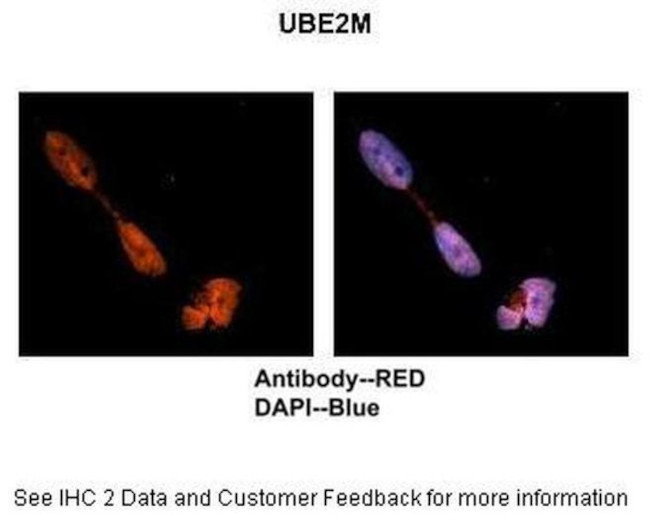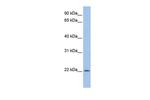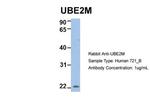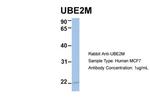Search Thermo Fisher Scientific
Product Details
PA5-42283
Species Reactivity
Host/Isotype
Class
Type
Immunogen
Conjugate
Form
Concentration
Purification
Storage buffer
Contains
Storage conditions
Shipping conditions
RRID
Product Specific Information
Peptide sequence: IKLFSLKQQK KEEESAGGTK GSSKKASAAQ LRIQKDINEL NLPKTCDISF
Sequence homology: Cow: 100%; Dog: 100%; Guinea Pig: 100%; Horse: 100%; Human: 100%; Mouse: 100%; Rabbit: 100%; Rat: 100%
Target Information
The modification of proteins with ubiquitin is an important cellular mechanism for targeting abnormal or short-lived proteins for degradation. Ubiquitination involves at least three classes of enzymes: ubiquitin-activating enzymes, or E1s, ubiquitin-conjugating enzymes, or E2s, and ubiquitin-protein ligases, or E3s. This gene encodes a member of the E2 ubiquitin-conjugating enzyme family. The encoded protein is linked with a ubiquitin-like protein, NEDD8, which can be conjugated to cellular proteins, such as Cdc53/culin.
For Research Use Only. Not for use in diagnostic procedures. Not for resale without express authorization.
References (0)
Bioinformatics
Protein Aliases: NEDD8 carrier protein; NEDD8 protein ligase; NEDD8-conjugating enzyme Ubc12; UBC12 homolog, yeast; ubiquitin C, related sequence 2; ubiquitin carrier protein M; ubiquitin conjugating enzyme E2M; Ubiquitin-conjugating enzyme E2 M; ubiquitin-conjugating enzyme E2M (UBC12 homolog, yeast); ubiquitin-protein ligase M; yeast UBC12 homolog
Gene Aliases: 2510040H03Rik; hUbc12; UBC-RS2; UBC12; UBE2M
UniProt ID: (Human) P61081, (Mouse) P61082
Entrez Gene ID: (Human) 9040, (Mouse) 22192

Performance Guarantee
If an Invitrogen™ antibody doesn't perform as described on our website or datasheet,we'll replace the product at no cost to you, or provide you with a credit for a future purchase.*
Learn more
We're here to help
Get expert recommendations for common problems or connect directly with an on staff expert for technical assistance related to applications, equipment and general product use.
Contact tech support






